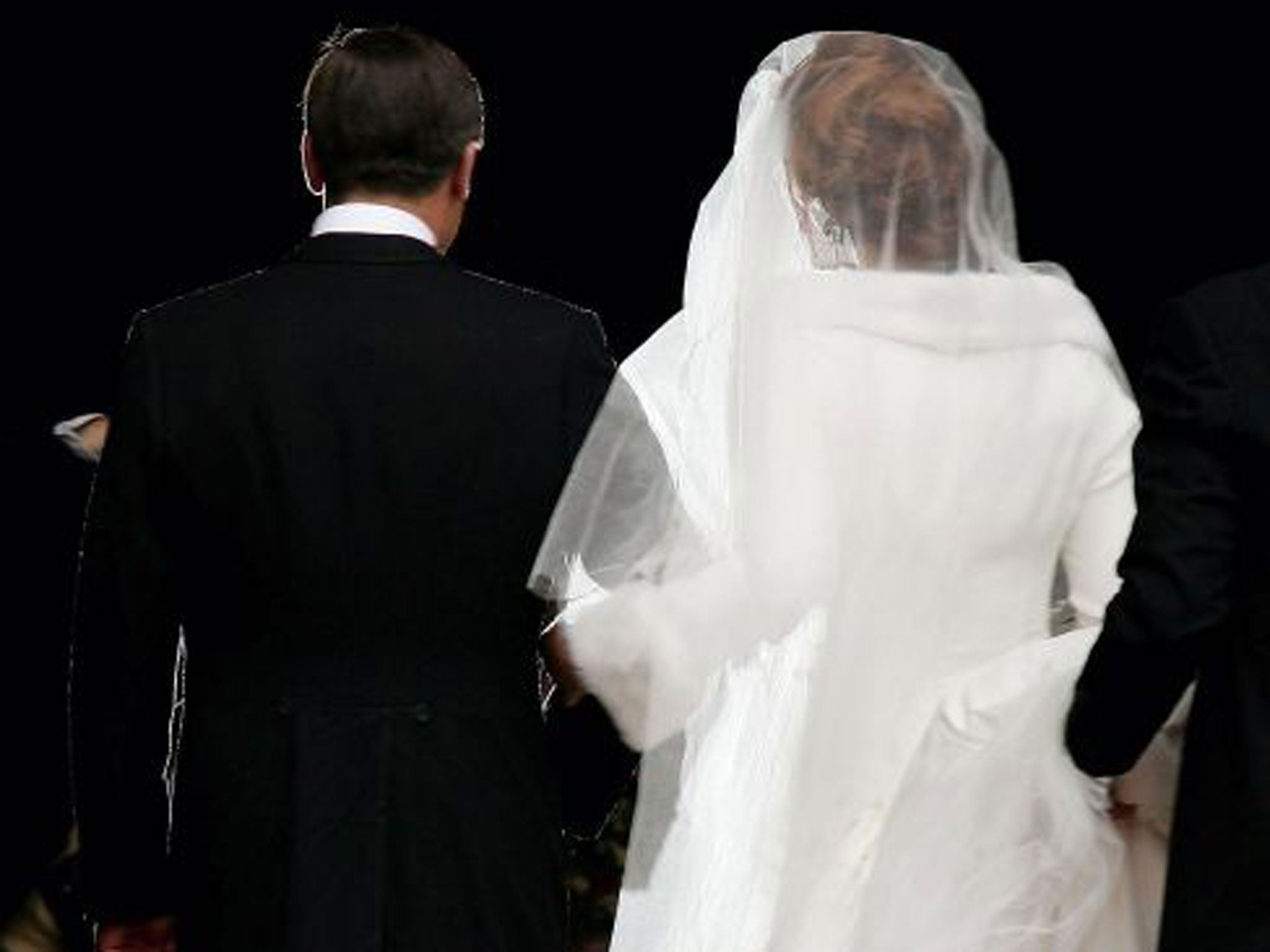Increasingly popular humanist weddings 'to overtake Church of Scotland ceremonies within two years'

And with this totally non-religious ring that has nothing to do with the “G” word or any of that stuff, I thee wed. These are the vows, one imagines, of the humanist wedding, demand for which is growing in an increasingly secular Britain.
The Humanist Society of Scotland has reported an increase in the number of ceremonies its celebrants are conducting, up to about 3,000 last year. It predicts they will become more popular than Church of Scotland weddings in as little as two years.
The same would be true elsewhere in the UK, the British Humanist Association (BHA) says, if only the ceremonies were legally recognised. That happened in Scotland in 2005, when there were fewer than 100 ceremonies, but the country is one of few in the world where non-religious weddings are allowed.
“It’s a great shame because people want them and there’s no real argument against them,” says Andrew Copson, chief executive of the BHA. He hopes the law will soon change. In the meantime, humanist couples may marry at a registry office and then have a humanist ceremony some time afterwards (or just have the ceremony, to hell with legal recognition). About 800 couples do this a year in England and Wales. The BHA’s growing membership, meanwhile, stands at 30,000.
But what even happens at a humanist wedding, beyond the avoidance of God talk?
Whatever you like, it turns out. You needn’t even bother with rings. There are no prescribed rituals. “Ceremonies are designed to be extremely personalised and meaningful,” Copson explains. “They’re a celebration of a relationship in front of family and friends. They’re not religious but look for meaning instead in people.”
Subscribe to Independent Premium to bookmark this article
Want to bookmark your favourite articles and stories to read or reference later? Start your Independent Premium subscription today.

Join our commenting forum
Join thought-provoking conversations, follow other Independent readers and see their replies